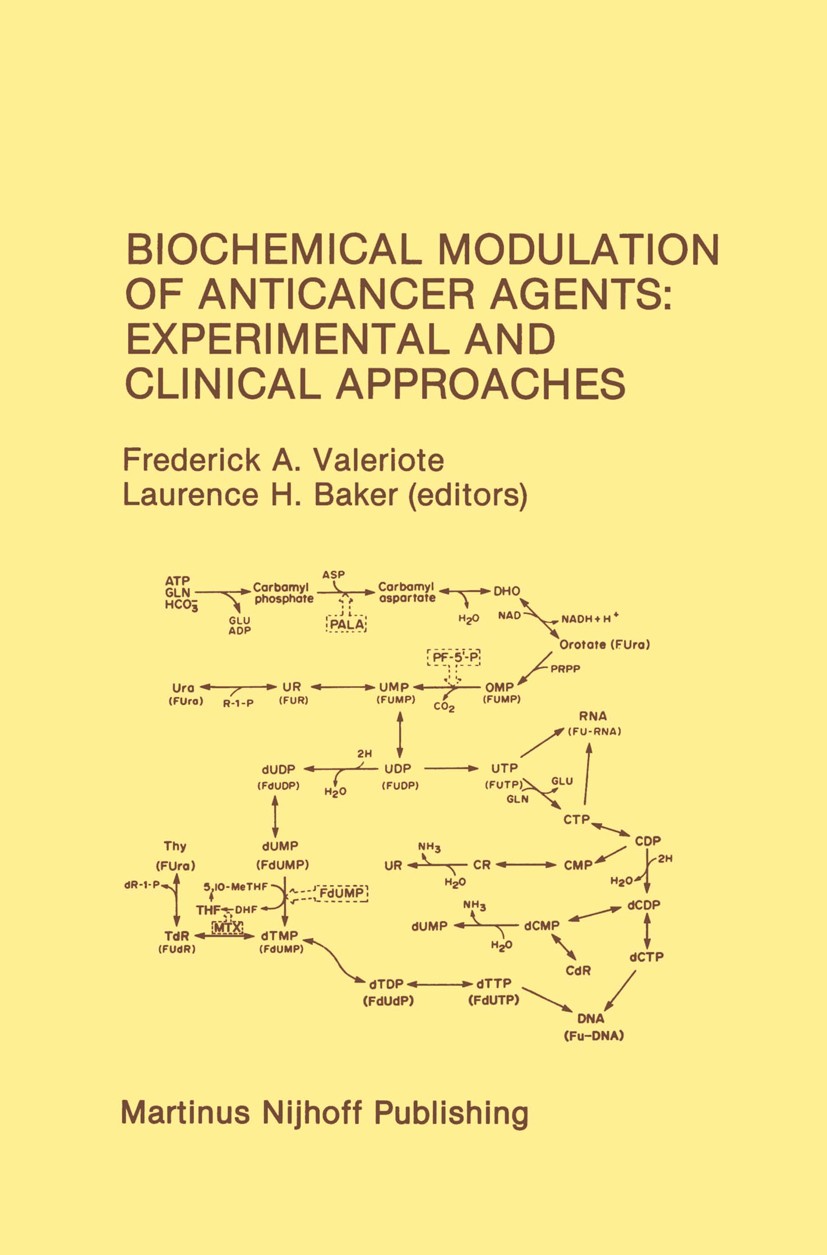| 期刊全稱 | Biochemical Modulation of Anticancer Agents: Experimental and Clinical Approaches | | 期刊簡稱 | Proceedings of the 1 | | 影響因子2023 | Frederick A. Valeriote,Laurence H. Baker | | 視頻video | http://file.papertrans.cn/187/186563/186563.mp4 | | 學(xué)科分類 | Developments in Oncology | | 圖書封面 |  | | 影響因子 | Biochemical Modulation at the present time defines an area of study in which the intracellular metabolism of a given anti- cancer agent is modulated (usually by a noncytotoxic agent or a cytotoxic agent at sufficiently low dosage to make it non- cytotoxic) in order to either increase the effectiveness of the particular agent against tumor cells or decrease its cytotox- icity against normal cells. The major focus of modulation has been the agents 5-fluorouracil (FUra), arabinofuranosylcytosine (ara-C), methotrexate (MTX) and a few alkylating agents. The major thrust of the studies has been to increase the flow of the anticancer agent along the pathway responsible for the formation of the cytotoxic species: for example, FUra to FUTP or ara-C to ara-CTP. While in most cases the application of research re- sults to clinical trials does not require the subsequent exper- tise of the laboratory researchers, application of biochemical modulatory schemes to clinical protocols necessitate a dramatic break with the past procedures. As shown in the laboratory- clinical loop below, close collaboration between the laboratory and clinical investigator is essential. While the laboratory REDEFINE T | | Pindex | Conference proceedings 1986 |
The information of publication is updating

|
|
 |Archiver|手機版|小黑屋|
派博傳思國際
( 京公網(wǎng)安備110108008328)
GMT+8, 2025-10-5 07:46
|Archiver|手機版|小黑屋|
派博傳思國際
( 京公網(wǎng)安備110108008328)
GMT+8, 2025-10-5 07:46


